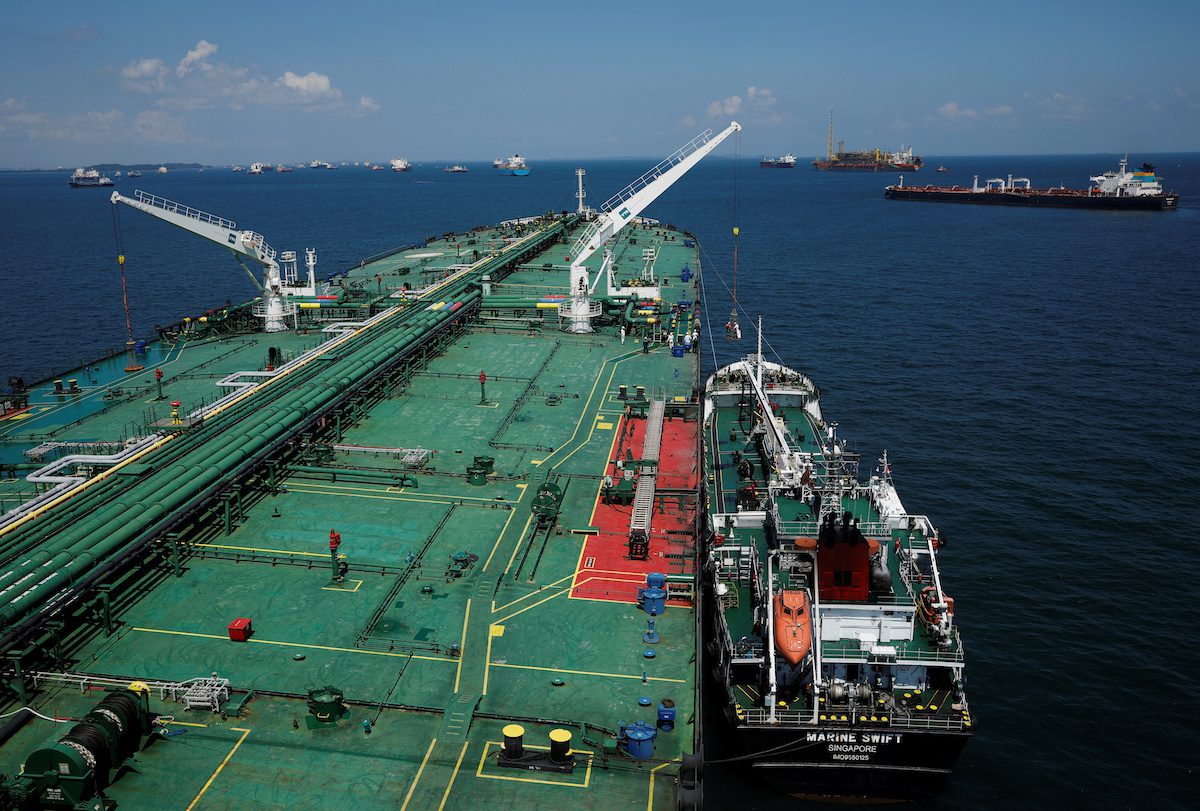File Photo: A bunker vessel prepares to supply fuel to a VLCC supertanker in the waters off Jurong Island in Singapore July 11, 2019. Picture taken July 11, 2019. REUTERS/Edgar Su
 By Roslan Khasawneh SINGAPORE, Jan 29 (Reuters) – PetroChina’s Singapore bunkering unit moved up a notch to be the top marine fuel supplier in the world’s biggest ship refuelling hub in 2019, official data showed, as the overall number of suppliers fell for a sixth year in a row.
By Roslan Khasawneh SINGAPORE, Jan 29 (Reuters) – PetroChina’s Singapore bunkering unit moved up a notch to be the top marine fuel supplier in the world’s biggest ship refuelling hub in 2019, official data showed, as the overall number of suppliers fell for a sixth year in a row.
Singapore-based Sentek Marine & Trading Pte Ltd climbed one spot to second, behind PetroChina International Singapore Pte Ltd, while Singapore’s Ocean Bunkering Services Pte Ltd, fell two places to third.
Tough market conditions and a crackdown by authorities on industry malpractice cut the number of licensed bunker suppliers to 45 from 51 a year earlier, the latest data https://www.mpa.gov.sg/web/portal/home/port-of-singapore/services/bunkering/bunkering-statistics/all-bunker-suppliers-by-volume from the Maritime and Port Authority (MPA) of Singapore showed.
The biggest leaps up the MPA’s ranking included Plamstone Tankers & Trading Pte Ltd, which rose to 13th place from 34th place a year ago, while Glencore Singapore jumped 14 places to to 7th spot.
Hong Lam Marine Pte Ltd marked the biggest drop, falling to 37th place in 2019 from 17th in 2018.
Brightoil Petroleum Pte Ltd fell 16 places to 44th, while Exxonmobil Asia Pacific Pte Ltd fell 15 spots to 22nd.
Singapore’s overall bunkering sales volumes in 2019 fell 5%, down for a second year in the face of increased regional competition. The city state accounts about 20% of global bunkering sales.
However, most suppliers saw profit margins improve in late 2019 thanks to new global rules that forced shippers to switch to new and cleaner fuels, trade sources said.
International Maritime Organization rules have capped the sulphur content of ship fuel at 0.5% from the start of 2020 unless vessels are equipped with exhaust-cleaning systems known as scrubbers.
Traders said the continued decline in the number of bunker suppliers has had a limited impact on the industry as the top 20 suppliers account for the vast majority of delivered volumes.
(Reporting by Roslan Khasawneh; editing by Richard Pullin)
(c) Copyright Thomson Reuters 2019.

 Join The Club
Join The Club











